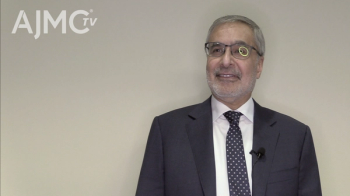
Congress, Medical Societies Move on Ways to Attack Opioid Problem
Two different approaches to attack the opioid-fueled substance use disorder crisis are on display this week, as Congress readies itself for action on more legislation, while 2 major medical organizations focused on payment models in order to deliver improved care.
Two different approaches to attack the opioid-fueled substance use disorder (SUD) crisis are on display this week, as Congress readies itself for action on more legislation, while 2 major medical organizations focused on payment models in order to deliver improved care.
Senator Lamar Alexander, R-Tennessee, and Senator Patty Murray, D-Washington, introduced bipartisan opioid legislation Tuesday and said the Senate Health Committee will consider the legislation next week.
Alexander’s office said
The senators said the bill, called the Opioid Crisis Response Act of 2018 (S. 2680), will improve the ability of HHS, the FDA, the CDC, the National Institutes of Health, as well as the departments of education, labor, the Health Resources and Service Administration, and the Substance Abuse and Mental Health Services Administration to address the crisis, which is estimated to kill about 100 people per day.
Among other measures, the bill will:
- Reauthorize and improve grants for prevention, response, and treatment for 3 more years
- Spur development and research on non-addictive painkillers
- Clarify FDA authority to require packaging and disposal options for opioids in so-called “blister packs” allowing only a 3- or 7-day supply of opioids
- Improve detection and seizure of illegal drugs at the border, such as fentanyl
- Provide support for states to improve their Prescription Drug Monitoring Programs and encourage data sharing between states so doctors and pharmacies can know if patients have a history of substance misuse
- Strengthen the healthcare workforce to increase access to mental health services in schools and community-based settings and to substance use disorder services in underserved areas
Also, this week, the House Energy and Commerce’s Health Subcommittee will hear from patient activists who lost family members to opioids. The subcommittee has also held hearings on close to
Separately, the American Medical Association and the American Society of Addiction Medicine jointly announced a proposed alternative payment model to treat patients with SUD.
In a
The new model, known as Patient-Centered Opioid Addiction Treatment (P-COAT), is aimed at increasing the number of patients who are able to successfully manage their condition while also reducing healthcare spending on costs such as emergency department visits and hospitalizations.
The payment model seeks to increase utilization of, and access to, medications for the treatment of opioid use disorder by providing the appropriate financial support to successfully treat patients and broaden the coordinated delivery of medical, psychological, and social support services. P-COAT is also designed to support office-based opioid treatment in order to facilitate coordination between multiple treatment providers.
Current payment systems are insufficient to identifiy, treat and diagnose SUD, and prior authorizations make it difficult to deliver care, the organizations said.
Newsletter
Stay ahead of policy, cost, and value—subscribe to AJMC for expert insights at the intersection of clinical care and health economics.
















